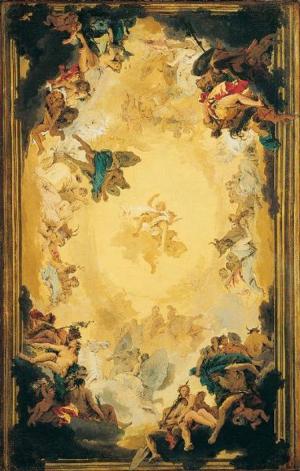| Author: | Bjørnstjerne Bjørnson | ISBN: | 9781465525932 |
| Publisher: | Library of Alexandria | Publication: | March 8, 2015 |
| Imprint: | Language: | English |
| Author: | Bjørnstjerne Bjørnson |
| ISBN: | 9781465525932 |
| Publisher: | Library of Alexandria |
| Publication: | March 8, 2015 |
| Imprint: | |
| Language: | English |
The three plays here presented were the outcome of a period when Björnson's views on many topics were undergoing a drastic revision and he was abandoning much of his previous orthodoxy in many directions. Two of them were written during, and one immediately after, a three years' absence from Norway—years spent almost entirely in southern Europe. [Note: Further details respecting Björnson's life will be found in the Introduction to Three Comedies by Björnson, published in Everyman's Library in 1912.] For nearly ten years previous to this voluntary exile, Björnson had been immersed in theatrical management and political propagandism. His political activities (guided by a more or less pronounced republican tendency) centred in an agitation for a truer equality between the kingdoms of Sweden and Norway, his point of view being that Norway had come to be regarded too much as a mere appanage of Sweden. Between that and his manifold and distracting cares as theatrical director, he had let imaginative work slide for the time being; but his years abroad had a recuperative effect, and, in addition, broadened his mental outlook in a remarkable manner. Foreign travel, a wider acquaintance with differing types of humanity, and, above all, a newly-won acquaintance with the contemporary literature of Other countries, made a deep impression upon Björnson's vigorously receptive mind. He browsed voraciously upon the works of foreign writers. Herbert Spencer, Darwin, John Stuart Mill, Taine, Max-Müller, formed a portion of his mental pabulum at this time—and the result was a significant alteration of mental attitude on a number of questions, and a determination to make the attempt to embody his theories in dramatic form. He had gained all at once, as he wrote to Georg Brandes, the eminent Danish critic, "eyes that saw and ears that heard." Up to this time the poet in him had been predominant; now it was to be the social philosopher that held the reins.
The three plays here presented were the outcome of a period when Björnson's views on many topics were undergoing a drastic revision and he was abandoning much of his previous orthodoxy in many directions. Two of them were written during, and one immediately after, a three years' absence from Norway—years spent almost entirely in southern Europe. [Note: Further details respecting Björnson's life will be found in the Introduction to Three Comedies by Björnson, published in Everyman's Library in 1912.] For nearly ten years previous to this voluntary exile, Björnson had been immersed in theatrical management and political propagandism. His political activities (guided by a more or less pronounced republican tendency) centred in an agitation for a truer equality between the kingdoms of Sweden and Norway, his point of view being that Norway had come to be regarded too much as a mere appanage of Sweden. Between that and his manifold and distracting cares as theatrical director, he had let imaginative work slide for the time being; but his years abroad had a recuperative effect, and, in addition, broadened his mental outlook in a remarkable manner. Foreign travel, a wider acquaintance with differing types of humanity, and, above all, a newly-won acquaintance with the contemporary literature of Other countries, made a deep impression upon Björnson's vigorously receptive mind. He browsed voraciously upon the works of foreign writers. Herbert Spencer, Darwin, John Stuart Mill, Taine, Max-Müller, formed a portion of his mental pabulum at this time—and the result was a significant alteration of mental attitude on a number of questions, and a determination to make the attempt to embody his theories in dramatic form. He had gained all at once, as he wrote to Georg Brandes, the eminent Danish critic, "eyes that saw and ears that heard." Up to this time the poet in him had been predominant; now it was to be the social philosopher that held the reins.















